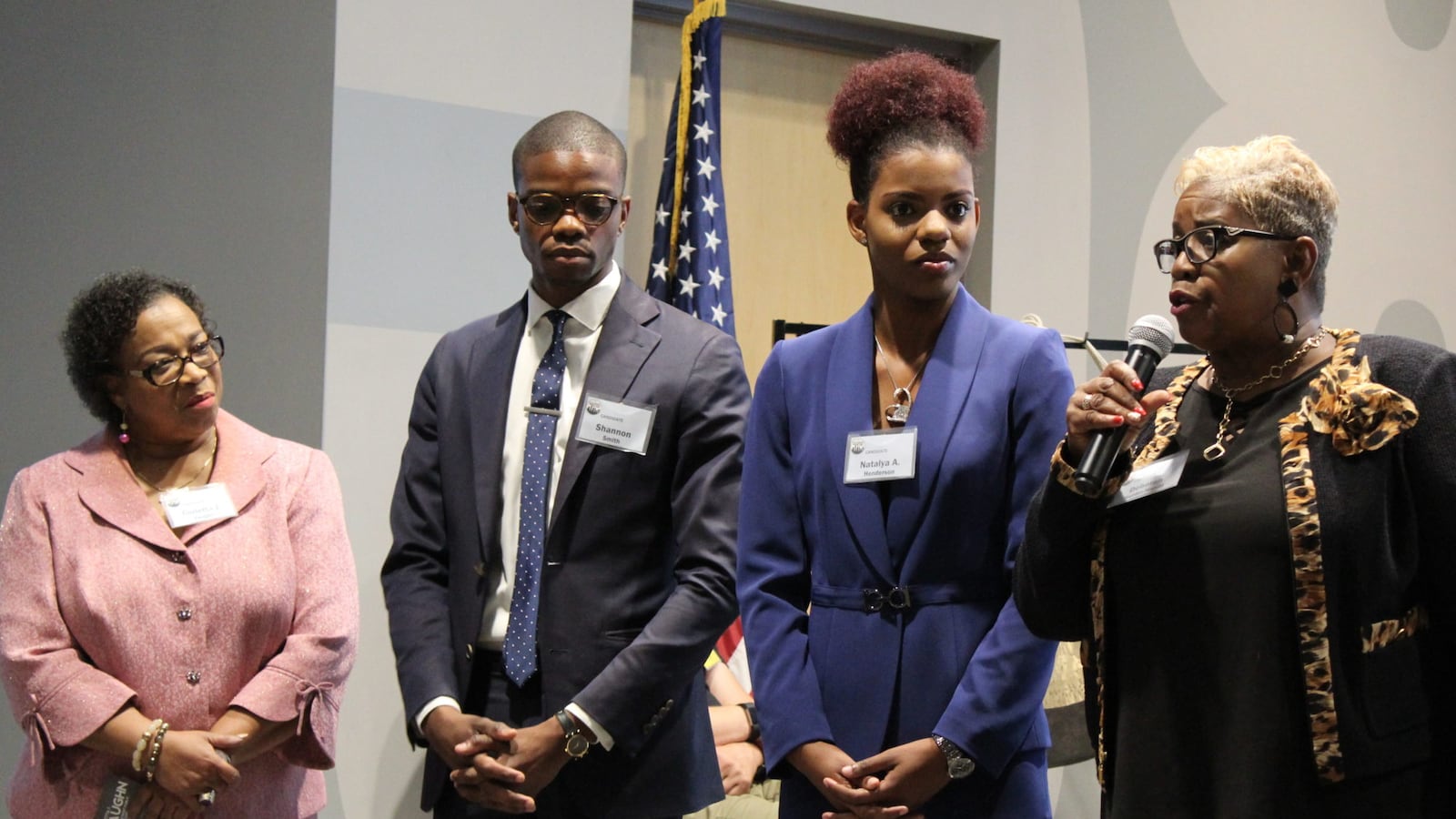One school board candidate is a college student running a largely self-funded campaign. Another has amassed financial support from Detroit education heavyweights. And an incumbent has stepped up her fundraising in an effort to keep her seat. And yet, by the standards of the 2016 election, when candidates for Detroit school board collectively spent more than $150,000, this year’s school board hopefuls are running on a shoestring.
That’s partly because the race is attracting less attention from major donors than it did in 2016. Two years ago, as the state prepared to hand control of the Detroit district back to the board after eight years, more than 60 candidates signed up to run for the seven available seats. Much of the money those candidates raised came in the form of large donations from unions. Board member Angelique Peterson-Mayberry, who is not up for reelection, received $47,500 from UAW-Ford (also her employer).
This time around, the candidate who has raised the most money, Shannon Smith, brought in roughly $15,000 in donations. Two of the candidates who reported contributions received less than $2,100, and four of the eight candidates didn’t report any political contributions, although they have shared their platforms publicly and participated in a public forum.
Tight campaign budgets mean political ads aimed at swaying the outcomes of higher-profile state and national races are likely to drown out the pitches of those vying for school board seats. Nonetheless, some candidates have been investing what they have raised in the nuts and bolts of political campaigning: yard signs, fundraising events, brochures, mailers, and online advertising.
Though relatively small, these contributions say a lot about the race for the two open seats, each carrying a four-year term. The four candidates who raised money filed their mandated contribution reports on Oct. 21. Here’s what they tell us.
Shannon Smith has the endorsement of Detroit education power players
As of October, the largest single donation given to any school board candidate was the $2,500 that Thomas LaSorda, a former Chrysler executive turned venture capitalist, gave to Smith. The candidate, running for office for the first time, is an analyst for a Detroit-based philanthropic fund run by J.P. Morgan Chase. Most other donations to Smith were small: The average gift to his campaign was $87. Some of those smaller donations came from people whose names will be familiar to education leaders in Detroit, including
- Tonya Allen, president of the Skillman Foundation, one of the largest philanthropies that backs K-12 education in the city ($250)
- Misha Stallworth, a current member of the Detroit school board ($250)
- Armen Hratchian, head of Teach for America in Detroit ($100)
- Andrew Stein, executive director of City Year Detroit ($50)
Incumbent Deborah Hunter-Harvill has upped her fundraising game and won support from board members
Almost all of the rest of the money raised in the 2018 election went to incumbent Deborah Hunter-Harvill. She raised a total of $13,200 — more than three times what her campaign amassed in 2016. That was good enough for a sixth place finish among 63 candidates, but since the candidates who got the fewest votes were elected to shorter terms, it meant she would be forced to run again in 2018.
Other board members were elected for four and six year terms to stagger board turnover. Hunter-Harvill brought in a larger number of individual donations than Smith — 244 to Smith’s 174. Among those supporters: Ivy Bailey, president of the Detroit Federation of Teachers ($50), and LaMar and Georgia Lemmons, the only two board members besides Stallworth who donated to a candidate ($40 each). (The Lemmonses are married; Georgia’s term expires in 2022, while LaMar did not run for re-election.)
Twenty-year-old Natalya Henderson sacrificed her savings to run for school board
Natalya Henderson, who graduated from Detroit’s Cass Tech just two years ago, donated $961 of her own money to her campaign, which has raised a total of $1,400.
“I’ve seen my savings take a dive, but you know, it’s an investment,” she said. “I believe in my cause and my passion. So why not?”
If she wins, she has vowed to commute to board meetings from Western Michigan University, where she is currently a student, covering about 130 miles each way.
Terrell George’s base is Detroit’s service worker unions
While unions aren’t donating at the same level they did in 2016, organized labor did make a show of support in 2018, and it went mostly to Hunter-Harvill and George.
George, the head football coach at Paul Robeson Malcolm X Academy, brought in donations from the UAW’s Ford chapter ($250) and from leaders of Unite Here! (more than $1,000 in total), a union that represents workers in several services industries.
Unite Here! Local 24, which represents hospitality workers in Detroit, Cleveland, and Cincinnati, also spent $700 in an effort to get George elected.
Scroll down to see a full list of donations to candidates for Detroit school board. Search for a candidates name or click at the top of the column to see the largest or smallest donations.
Source: Wayne County Clerk and Michigan Secretary of State

